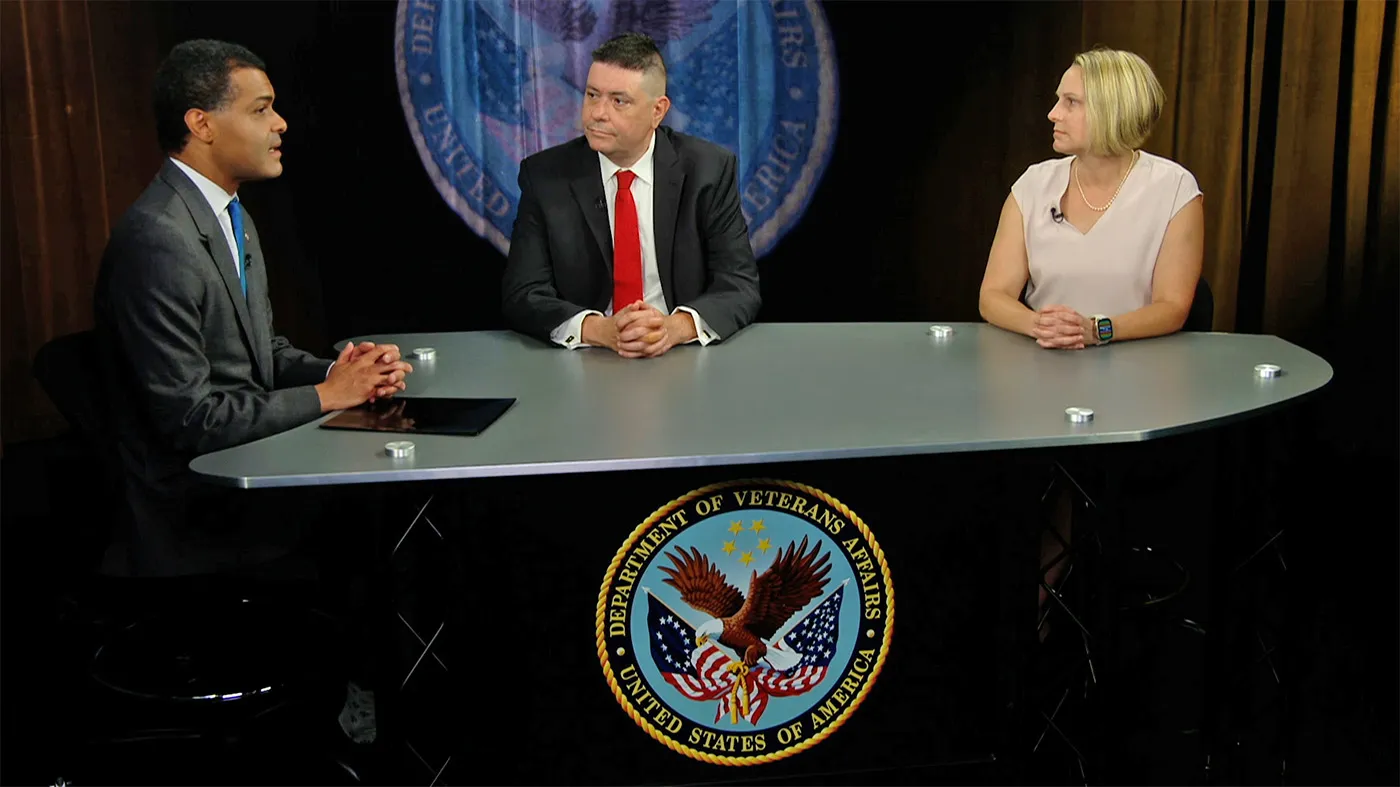A past VA study found that as many as 3 in 4 Iraq and Afghanistan Veterans receiving care through VA who had an alcohol or substance use disorder also had PTSD or depression. Treating the combined disorders has been a challenge for clinicians. (Photo for illustrative purposes only. ©iStock/Nomadsoul1)
A type of psychotherapy called prolonged exposure therapy is more effective at treating PTSD than Seeking Safety, a coping-skills therapy, for patients who also have alcohol use disorder.
That was the finding from a recent study at the VA San Diego Healthcare System. The results offer important guidance for VA clinicians who care for Veterans coping with both PTSD and problem drinking.
The researchers compared patients who were given integrated alcohol and prolonged exposure treatment with those given integrated alcohol and coping-skills treatment.
Both treatments reduced PTSD symptoms and heavy drinking. But patients receiving prolonged exposure therapy had significantly lower scores on a measure of PTSD symptoms. The researchers concluded that prolonged exposure therapy should be offered to patients with PTSD whenever possible, including to patients with alcohol use disorder.
The results appeared recently in the journal JAMA Psychiatry.
Dr. Sonya Norman led the study. She is a researcher at the San Diego VA, director of the PTSD Consultation Program for the National Center for PTSD, and a professor of psychiatry at the University of California San Diego.
Norman explained that the results could lead to better treatment for PTSD.
“The research is not showing concerns that PTSD patients with alcohol use disorder can’t handle exposure to be true,” she said. “The main takeaway of the study for me is that we may be doing a disservice to Veterans if we don’t offer them the best treatments we have available for PTSD, such as prolonged exposure.”
To read more about this study, visit VA Research Currents.
For general information about VA research on PTSD and substance use disorders, visit the topic pages section of the VA Research website.
Topics in this story
More Stories
Diverse representation of women in health care research allows MVP to make discoveries for women’s health
Join the Million Veteran Program online. You will have the option to receive an at-home blood sample collection kit in the mail.
VHA's new podcast series, New Horizons in Health, features a candid discussion of psychedelic assisted therapies for Veterans experiencing mental health conditions.







Thank you so much for your service, and your continuing commitment to vets. I served as an AF medic during the Vietnam Conflict. I am retired as a clinical psychologist and faculty member. I provide at no cost clinical consultation to combat vets dating back to Korea
You say there are two avenues for research and treatments, but you don’t say what they are. I could really use this information.
I am reading you article and if now the VA pays a lot of attention to the Iraq an Afghanistan veteran and now there is also the PTSD but what happens with our veterans of past wars like korea..Vietnam, they where left with wounds and had no help whatsoever, my husband in the war of korea had what is now called TBI..before it was a simple accident they did not have or to integrate back into the workforce as now for everything has help.I know whit this injury my husband always lived in pain at that time as he was young the pain was bearable and obviously as his lesson was in the brain was affected all the half of his body and then only gave him 60% disable today I see veteranswith half of the injury that my husband had and they are 100%obviously disable in those times and without help my husband used alcohol to alleviate his pain as others used marijuana or other illegals drugs.for this reason my husband liver suffered damage he stop drinking 26 yrs ago as he got older his pain became more and more acute in august 2008 he returned to the VA an get 90% an 10% for unemployabilityat this time my husband was 78 yrs old and used many medicines for his pain medicines that hurt his liver more jhe was in wheelchair because he can walk anymore my husband died in January 4,2017 an I am asking as widow for 40 yrs DIC and the VA denying it because according to them do not find relationship between the chirosis of the liver and the amount of drugs he take drugs like the opioids TRAMADOL ..for the VA my husband was an alcoholic person not a veteran with PTSD BECAUSE IN THT TIME PTSD NO EXIST and when they finally treated him as they should they did not give importance to his alcohol problem since by that time he no longer drank but the diagnoses from de VA was liver cirrhosis due to alcohol easy ????Nonbody can imagine the suffering of my husband in the last year of his life, well that the veterans today have all the help they deserve to defend our Country as my husband did in his time.
I totally agree Vietnam and other Foreign War Veterans do not get the same treatment or compensation benefits or services.
What is prolonged exposure therapy?
I personally believe that the PTSD label is given out too freely in the last 10 or so years. There’s vets from the two small mentioned wars that have been awarded 80-100%, thereby, getting paid by the VA, and WORKING too! If one has, and truly has PTSD, how can they work also, while having a supposed PTSD diagnosis?? No, I don’t get it! I guess it’s because I’m a Vietnam vet fro 1969. Leaving in-country (Vietnam), they gave us a steak dinner, and said good-bye! THEN the real battle began, fighting the VA in the following years. NO, and I’m not a cry baby folks!
Totally Agree with you!!
Just so you know, this is total crap. Prolonged exposure therapy is like telling a rape victim to relive the experience over and over again until she gets used to it.
I have dealt with many veterans with PTSD and every one of them that had prolonged exposure therapy, claimed to be cured quickly so they disnt have to continue, or just stopped returning in which case they were considered a success.
The problem you have in a study like this is that the Doctor isn’t the one with PTSD. So they have to listen and interpret what the vet is saying. Lying to prevent having to relive traumatic experiences is expected when you have PTSD!! I suppose the researchers didn’t consider the Veterans were going to be smart.